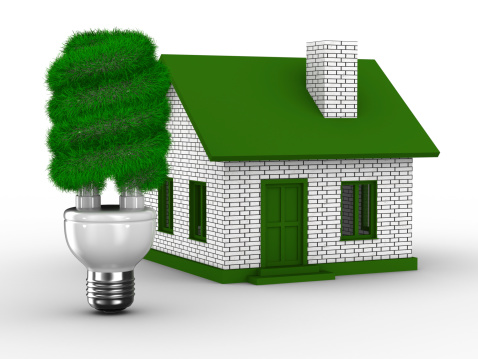Tuesday, 03/03/2026 | 20:54 GMT+7
PROJECT SUMMARY
Energy is a major concern in Thailand, as continued economic development demands more consumption and production of electricity. According to the Department of Alternative Energy Development and Efficiency, energy consumption in Thailand grew more than two-fold over the past 20 years and is expected to increase by almost 6 per cent, per year until 2021.
Thailand's Eleventh National Economic and Social Development Plan for 2012-2016, has targeted improvements in natural resource and environmental quality through the development of energy security policies.
Energy efficiency is key to achieving energy security and reducing greenhouse gas emissions. The commercial building sector has been identified as an area where significant savings can be made because energy demand and consumption in this sector is considered to be rapidly growing.

This project expects to enhance the investments in energy efficiency practices /technologies in the Thai commercial sector through enhancement of the energy efficiency building design concept and the adoption of compliance to the new Thai Building Energy Code.
The PEECB project aims to support the improvement and construction of energy-saving buildings by strengthening national capacity in promoting environment management in a sustainable manner. This will ensure that environment and energy ate taken into account in drawing up and implementing national policies and programmes. Thus, in turn, provide incentives and generally create awareness about energy efficiency.
The project’s goal is to reduce green-house gas emissions from Thai commercial buildings by supporting and encouraging the use and adoption of energy efficiency technologies in the commercial building sector.
MAIN ACTIVITIES
- Enhance awareness of government agencies and local authorities, the building sector, and financial institutes on designs and implementations of energy efficiency technologies and practices that are applicable to the Thai context.
- Establish, complement, and enable the compliance to favorable policies and policy instruments that encourage energy efficiency technologies and practices for commercial buildings in Thailand.
- Establish a Commercial Building energy efficiency Information Centre.
- Improve confidence in investing in the application of energy efficiency technologies and practices in commercial buildings.
- Strengthen information exchange and dissemination among the commercial building stakeholders in Thailand.
- Develop and promote energy use simulation models for commercial building design
- Enhance the capacity of stakeholders to implement energy efficiency measures in commercial buildings.
- Design and implement capacity building activities to enhance the skills of commercial building executives and institutes, to assess feasibility energy efficiency application projects for commercial buildings
- Establish business linkages between suppliers of energy efficiency technologies, building owners, banks and building practitioners.
- Develop new and improved financing models for energy efficiency commercial buildings.
- Update policy measures to be more effective on energy efficiency in commercial buildings.
- Improve confidence in the feasibility, performance, energy environmental and economic benefits of energy efficiency technologies and practices in commercial buildings.
- Improve local technical and managerial capacity to design, manage and maintain energy efficiency technologies and practices.
- Implement awareness raising campaigns on the benefits of energy efficiency technologies and applications for commercial buildings.
KEY FACTS
The commercial sector includes, commercial buildings, not-for-profit organisations and public lighting.
In 2009, the commercial sector consumed 35 per cent of Thailand’s energy, second to only the industrial sector. It is the fastest growing sector in the country.
EXPECTED RESULTS
- Reduced carbon emissions by an estimated 2.6 per cent per year.
- Savings made in electricity in buildings sector, and corresponding CO2 emissions reduction.
- Significant capacity built, whereby 70 per cent of building practitioners and professionals are enabled to design energy efficiency buildings on a large scale.
- Improved access to financing for energy efficiency in buildings, including implementation of new and improved financing tool/models for commercial building energy efficiency investments.
- More stringent implementation of mandatory policy instruments to promote energy efficiency in buildings, specifically the new Building Energy Code.
- Awareness on energy efficiency technologies and practices. Where at least 80 per cent of commercial building stakeholders are aware of and agree to greater availability and quality of information.
Truong Duy







